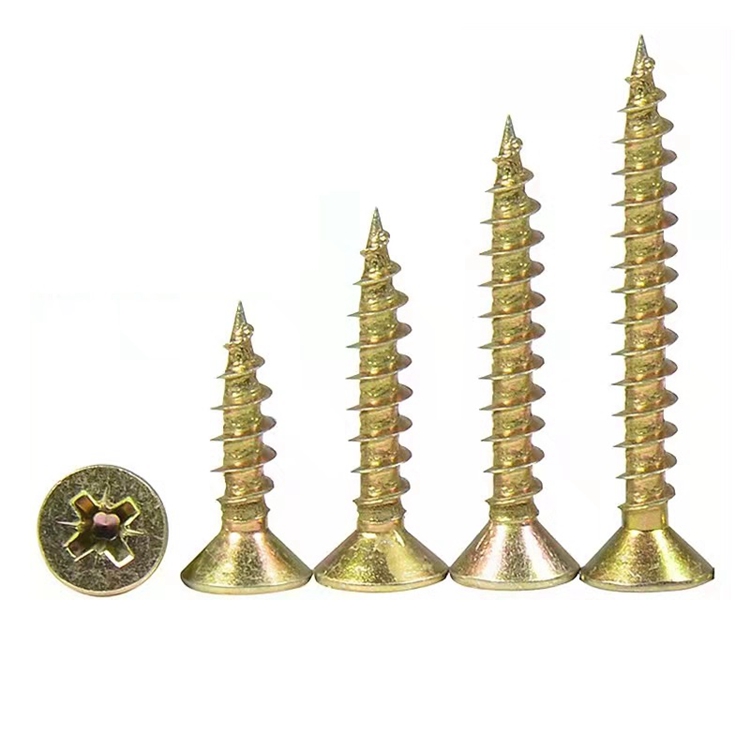oem carridge bolts
Oct . 19, 2024 14:27 Back to list
oem carridge bolts
Understanding OEM Carriage Bolts Function, Types, and Applications
Carriage bolts, a staple in various industrial and construction applications, play a vital role in ensuring strong and secure connections. When we refer to OEM carriage bolts, we are diving into the realm of Original Equipment Manufacturer (OEM) specifications, which pertain to the exact standards and designs set forth by the original manufacturers. In this article, we will explore the functionality, varieties, and applications of these essential fasteners.
What are Carriage Bolts?
Carriage bolts are a type of fastener featuring a smooth, rounded head and a square section beneath the head that locks into place when tightened. This unique design prevents the bolt from spinning, which makes it ideal for use in wood, metal, and other materials where a secure grip is necessary. The other end of the bolt typically features threads, allowing it to be secured with a nut or by screwing directly into a compatible tapped hole.
OEM Specifications and Their Importance
When it comes to manufacturing and assembly, adhering to OEM specifications is crucial. OEM carriage bolts are designed to meet particular requirements regarding dimensions, materials, and mechanical properties. This ensures that they perform consistently and reliably in their intended applications.
Using OEM bolts guarantees compatibility with existing equipment and components, which is particularly crucial in sectors like automotive, aerospace, and machinery manufacturing. Any deviation from OEM specifications can result in failures or malfunctions, leading to costly repairs or safety hazards.
Types of OEM Carriage Bolts
Carriage bolts come in various types to cater to different applications
. Here are some common varieties1. Standard Carriage Bolts These are the most common type, typically made from carbon steel and available in various sizes. They are useful in general purpose applications, including the construction of furniture and frameworks.
2. Stainless Steel Carriage Bolts For applications that require resistance to corrosion, stainless steel carriage bolts are ideal. They provide strength while resisting rust and are commonly used in outdoor projects or environments with extreme conditions.
oem carridge bolts

3. High-Strength Carriage Bolts These bolts are manufactured to withstand higher levels of stress and are often used in heavy machinery and structural applications. They are typically made from stronger alloys.
4. Specialty Carriage Bolts Some industries may require specific types of carriage bolts, such as those with unique coatings for added protection or specialized dimensions for specific assemblies.
Applications of OEM Carriage Bolts
The versatility of carriage bolts allows them to be used in a wide range of applications
1. Construction and Carpentry Carriage bolts are frequently used in building structures, furniture, and fencing. Their ability to secure wood joints makes them a favorite among carpenters.
2. Automotive Industry In vehicle manufacturing, OEM carriage bolts are used to assemble various components, such as frames and body panels. Adherence to OEM specifications ensures safety and reliability in automotive parts.
3. Machinery Manufacturing Heavy machinery often requires robust fastening solutions. OEM carriage bolts ensure that machinery maintains structural integrity even under heavy loads and stress.
4. Railroad and Bridge Construction The construction of railroads and bridges frequently utilizes OEM carriage bolts due to their strength and durability, which are vital for supporting heavy loads and ensuring safety.
Conclusion
OEM carriage bolts are an essential component in various industries, providing secure and reliable fastening solutions that meet stringent specifications. Their unique design, coupled with compliance with OEM standards, makes them indispensable in applications ranging from construction to automotive manufacturing. As the global industries continue to evolve, the demand for high-quality OEM carriage bolts will undoubtedly remain strong, driving advancements in materials, design, and manufacturing processes to meet the ever-growing needs of various sectors. Whether you are a manufacturer, engineer, or DIY enthusiast, understanding the significance of OEM carriage bolts will help you make informed decisions for your projects.
Latest news
-
High-Quality Panel Stud Bolt Reliable Panel Stud Bolt Factory & Suppliers
NewsJul.08,2025
-
High-Precision Fine Thread Locknuts Manufacturer & Supplier Custom Solutions
NewsJul.08,2025
-
PH Imperial Stud Bolt – High Strength Fasteners from Leading Supplier & Factory
NewsJul.07,2025
-
High-Quality Allen Wrench Bolts Leading Factory, Company & Suppliers
NewsJul.07,2025
-
Wholesale Ball Stud Bolt - High Quality Supplier & Factory Price Reliable Wholesale Ball Stud Bolt Company
NewsJul.06,2025
-
High-Strength Alloy Bolts Manufacturer & Supplier Quality Alloy Fasteners Factory
NewsJul.06,2025
